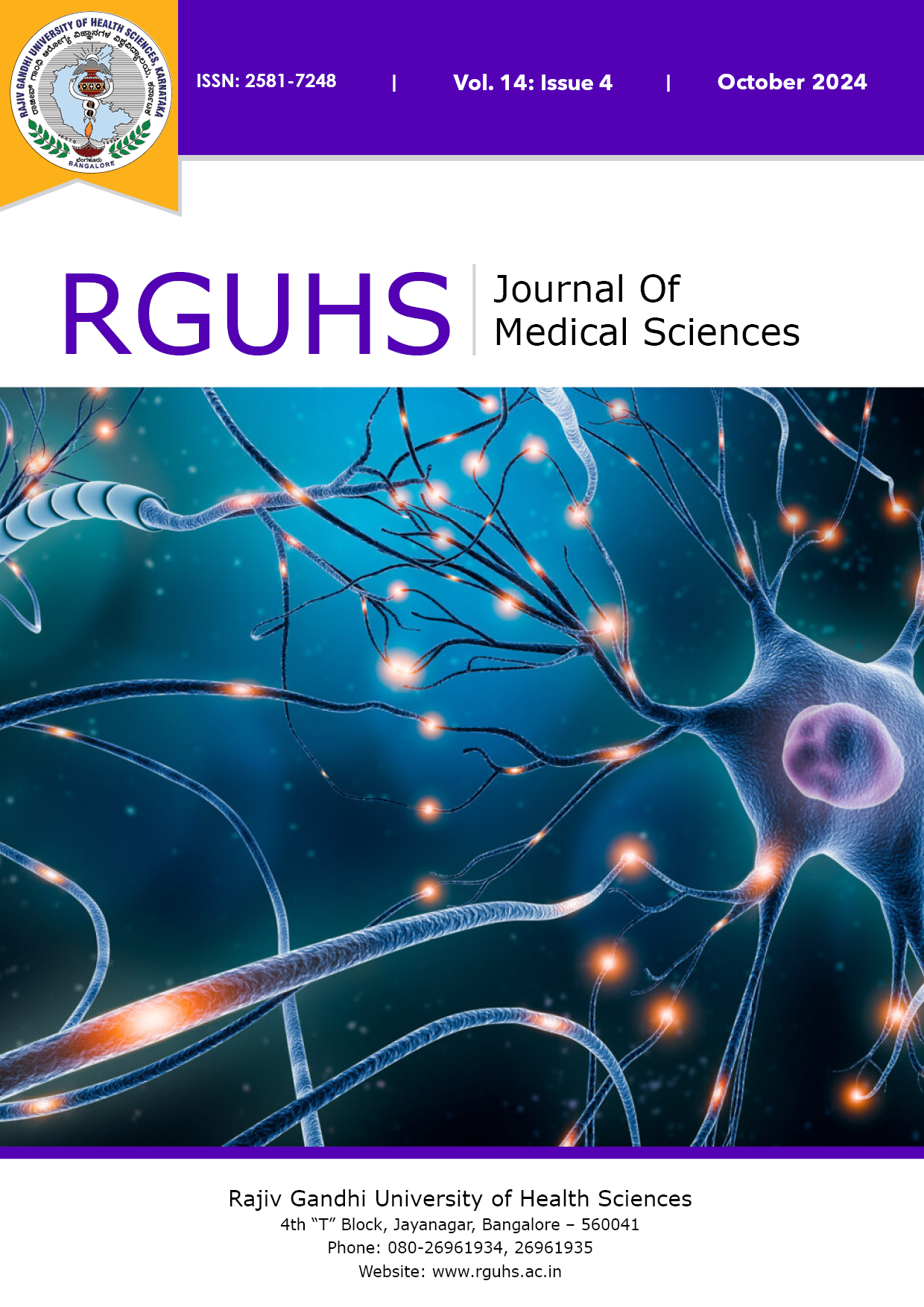
RGUHS Nat. J. Pub. Heal. Sci Vol: 14 Issue: 4 eISSN: pISSN
Dear Authors,
We invite you to watch this comprehensive video guide on the process of submitting your article online. This video will provide you with step-by-step instructions to ensure a smooth and successful submission.
Thank you for your attention and cooperation.
R.Vinay Kumar1 , N.R Ramesh Masthi2
1 Department of T.B & Chest Diseases ,2Associate Professor, Department of Community Medicine, Kempegowda Institute of Medical Sciences, Bangalore, Karnataka, India

Abstract
Objective: To assess the knowledge about universal and isolation precautions (UIP) in the undergraduate medical students (UMS) before and after educational intervention .Design: Semi-structured, self-designed, tested questionnaire before and after educational intervention were filled-up by the students. Data was entered and analyzed using the EpiInfo-version 6 statistical package and Chi-square test respectively. Setting:Medical college situated in Bangalore. Participants: 260 undergraduate para-clinical & clinical medical students. Outcome Measure: Assessing i) having heard the UIP related phrases ii) knowledge of infection transmission in hospital setting iii) UIPrelated practice iv) Aptitude test to recall barrier methods/objects of UIP.
Results: 167 (64.23%) students had heard of universal precautions and 133(51.15%) responded had knowledge about Universal Precautions. 102 (39.2%) and 111 (42.7%) knew of correct hand washing procedure with respect to examining the patient and using the gloves respectively. 240 (77.8%) students said they would do recapping or manipulating used needles and 89 (58.9%) responded about disposing needle in manner that could cause needle stick injury to other health-care workers.221 (85%) students just knew less than three barrier objects of UIP' practice and most commonly known object was glove.
Conclusion; Under graduate medical student's (UMS) knowledge on UIP is less than satisfactory. Third term students lagged behind the rest of UMS [p< 0.01] and so were refresher' batches as compared with the corresponding main batches in all questions relating to UIP, in both pretest and post-test [p < 0.05].There is increased awareness of UIP as student goes to higher terms and with educational interventions [p < 0.01]. Further large scale study on national basis has to be undertaken to assess the magnitude of ignorance and to plan awareness programme.
Keywords
Downloads
-
1FullTextPDF
Article
none
Supporting File
References
none